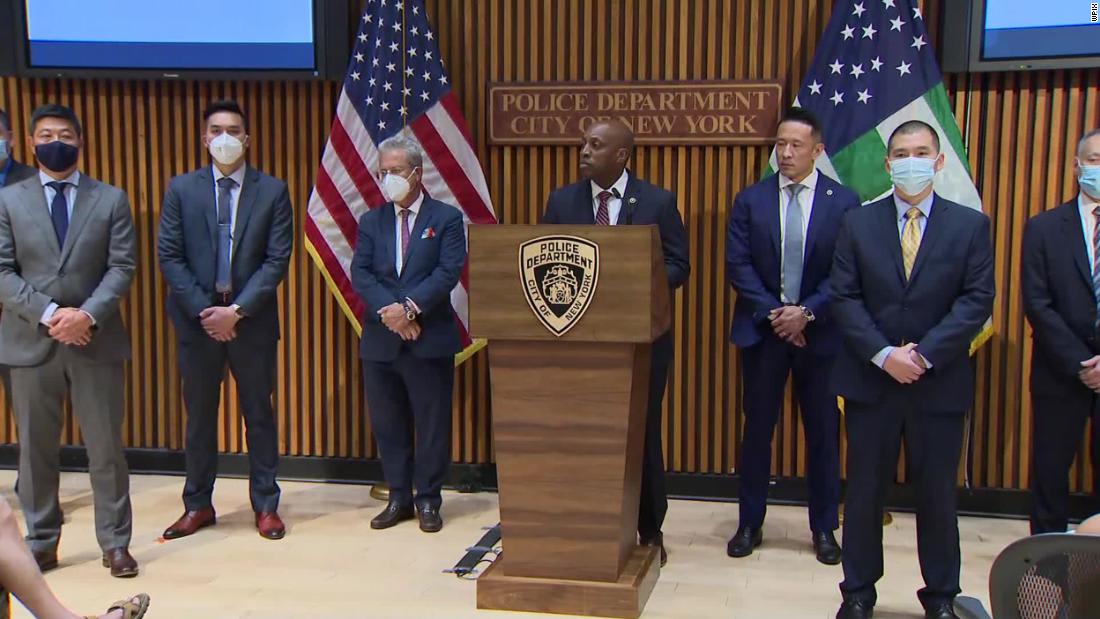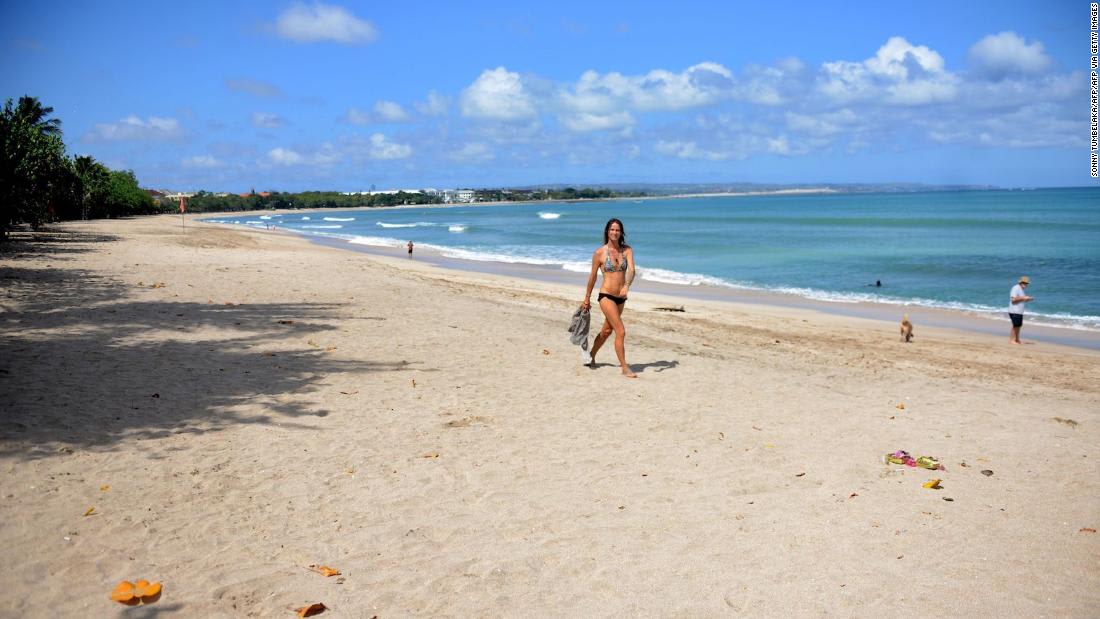A continent-by-continent look at where coronavirus stands across the world
More than 22 million people have been infected with coronavirus worldwide since the pandemic began, and countries around the world are at different points in the fight against the virus.
Here's a look at where the pandemic stands across the world:
World's largest 10k will be virtual this year because of the pandemic
From CNN's Melissa Alonso
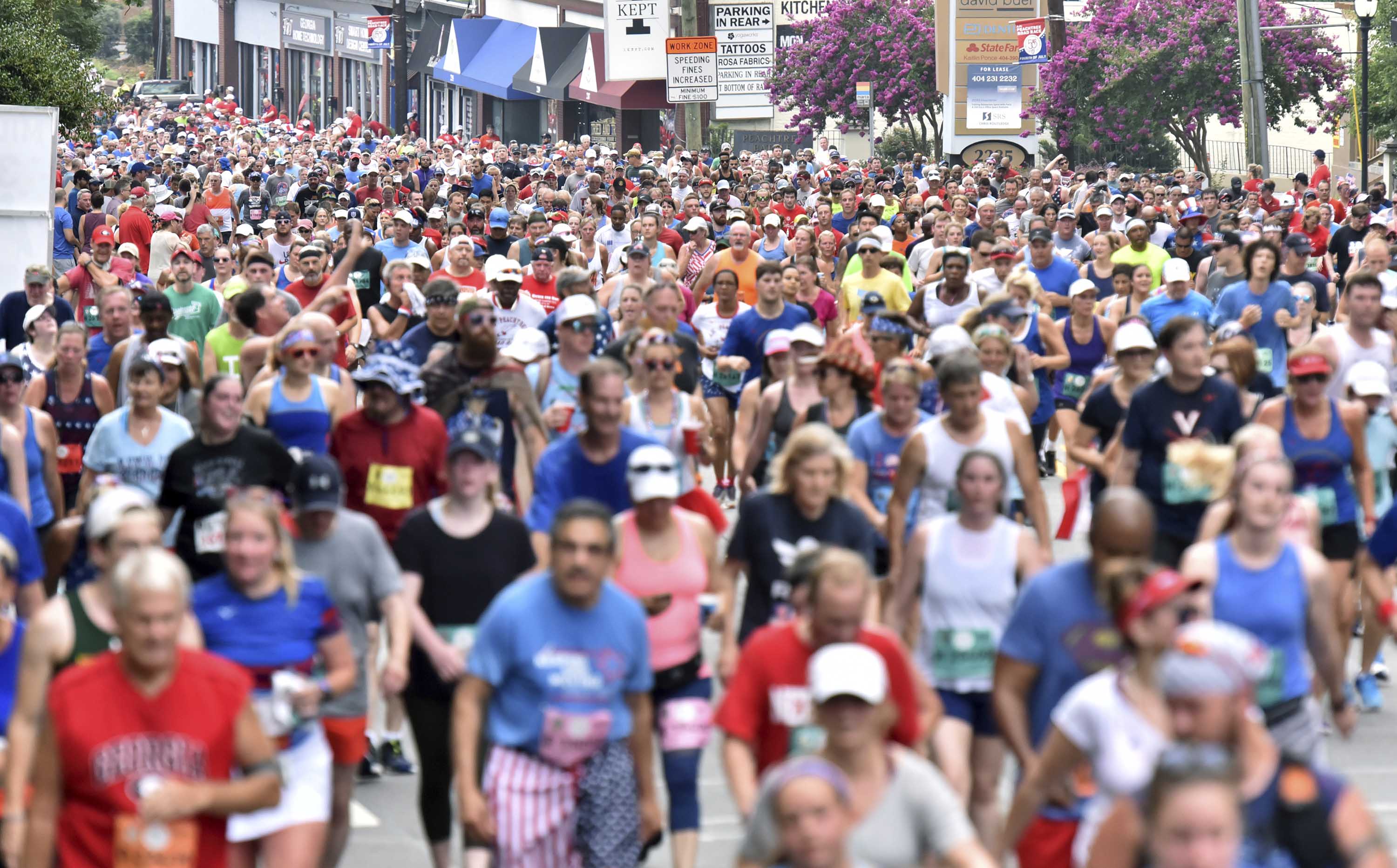 Runners make their way down Peachtree Road during the 50th AJC Peachtree Road Race on July 4, 2019. Hyosub Shin/Atlanta Journal-Constitution/AP
Runners make their way down Peachtree Road during the 50th AJC Peachtree Road Race on July 4, 2019. Hyosub Shin/Atlanta Journal-Constitution/APAtlanta's 51st AJC Peachtree Road Race will be a completely virtual event in 2020, the Atlanta Track Club announced in a statement Wednesday.
The Club, which organizes the "world's largest 10K" race, had previously postponed the event from July 4 to Thanksgiving Day, according to the statement.
"The Club concluded that a virtual race was the safest option for participants, volunteers, staff, and the hundreds of city and state employees, many of whom are first responders, who come together to help deliver the event to Atlanta each year," the release said.
"The curve is no longer flattened and we have significant community spread of the virus here in the city of Atlanta and the state of Georgia," said Dr. Jonathan Kim, the Peachtree's Co-Medical Director.
The virtual race will still be held on Thanksgiving Day, Nov. 26, the release said.
"Those who had already registered for the Peachtree will be automatically placed into the virtual event," said the release.
What you need to know about coronavirus today
From CNN's Ivana Kottsasova
A version of this story appeared in the August 19 edition of CNN's Coronavirus: Fact vs. Fiction newsletter. Sign up here to receive the need-to-know headlines every weekday.
"UNC has a clusterf**k on its hands."
The editorial board for the student newspaper at the University of North Carolina at Chapel Hill didn't mince words in its assessment of the school's coronavirus response. The university was forced to cancel in-person classes after at least 130 students tested positive for Covid-19 in the first week of classes.
The university's chancellor blamed off-campus activities for the outbreak, but the newspaper saw it differently. "We all saw this coming," the Daily Tar Heel editorial board wrote. "Though these students are not faultless, it was the University's responsibility to disincentivize such gatherings by reconsidering its plans to operate in-person earlier on."
UNC is just one of many universities across the US experiencing outbreaks just days after students started returning to campuses. Indiana's University of Notre Dame was forced to announce yesterday that all undergraduate classes will be remote for the next two weeks as it tries to get its own recent spike in cases under control.
The World Health Organization said yesterday young people are "increasingly driving" the pandemic.
Read the full story here or sign up for the newsletter.
Coronavirus cases have already caused some US colleges to halt in-person classes
From CNN's Christina Maxouris
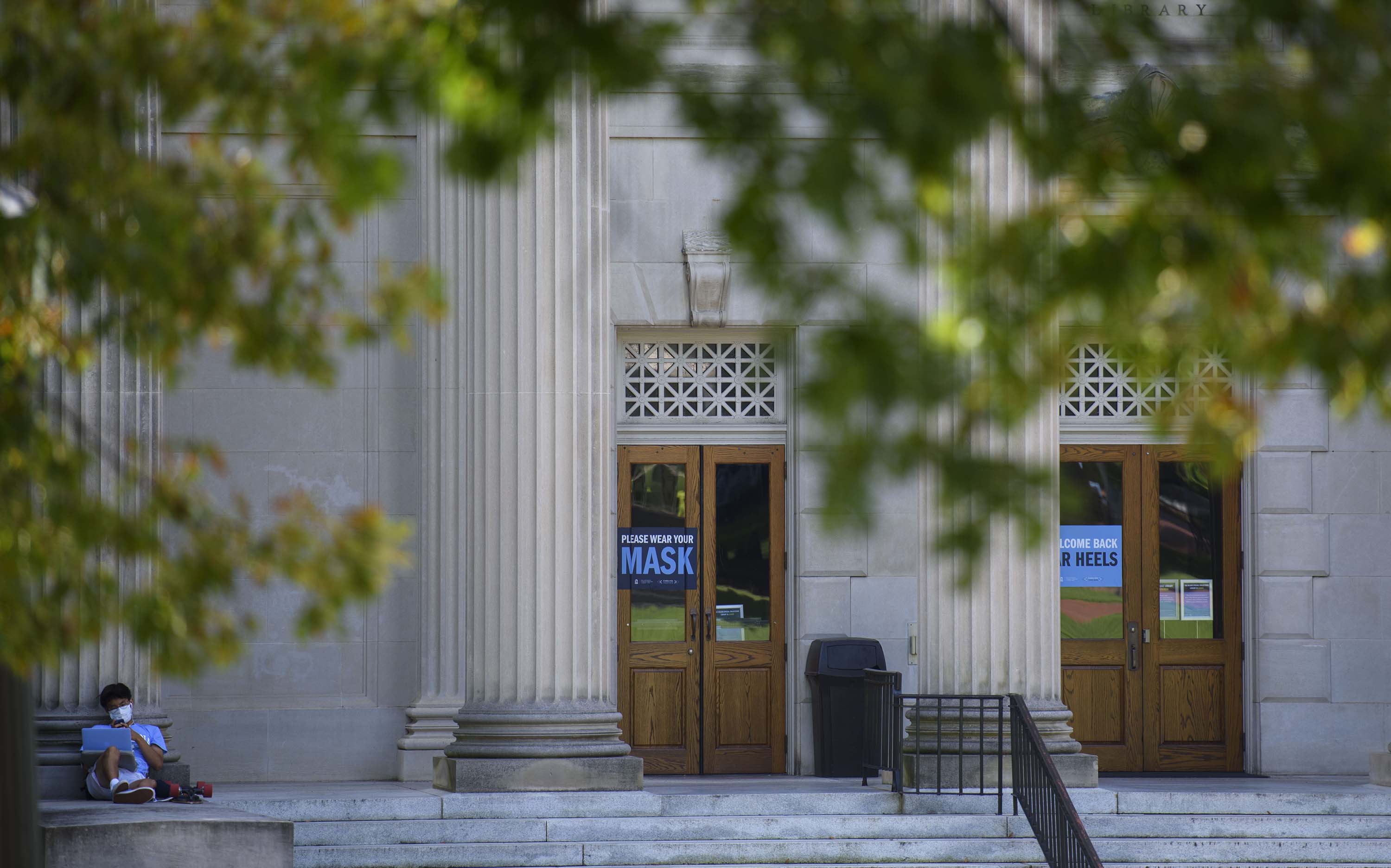 A student studies outside the closed Wilson Library on the campus of the University of North Carolina at Chapel Hill on August 18, in Chapel Hill, North Carolina. Melissa Sue Gerrits/Getty Images
A student studies outside the closed Wilson Library on the campus of the University of North Carolina at Chapel Hill on August 18, in Chapel Hill, North Carolina. Melissa Sue Gerrits/Getty ImagesJust days before classes are slated to resume, colleges across the country are finding it may be next to impossible to create a coronavirus-free environment on campus.
Young people -- who US officials say helped drive a nationwide surge of new coronavirus cases over the summer -- are now returning to college campuses across the country. With them have come reports of hundreds of infections. Despite efforts to keep the virus at bay, outbreaks have been traced to off-campus gatherings, sororities and fraternities, and dorms, leaving schools to reassess how to proceed with the fall semester.
At Appalachian State University, a cluster was associated with the football team. Iowa State University said 175 students tested positive for the virus -- about 2.2% of those tested -- during move-in.
"It's just extremely difficult to consider yourself to be in a bubble when there is a very high level of community spread around you or when people are coming from all over the country and congregating on college campuses," said Dr. Leana Wen, the former Baltimore City Health Commissioner. "You can't keep coronavirus out."
Pope says Covid-19 vaccine should be for all, but especially the poor
From CNN's Livia Borghese and Sharon Braithwaite
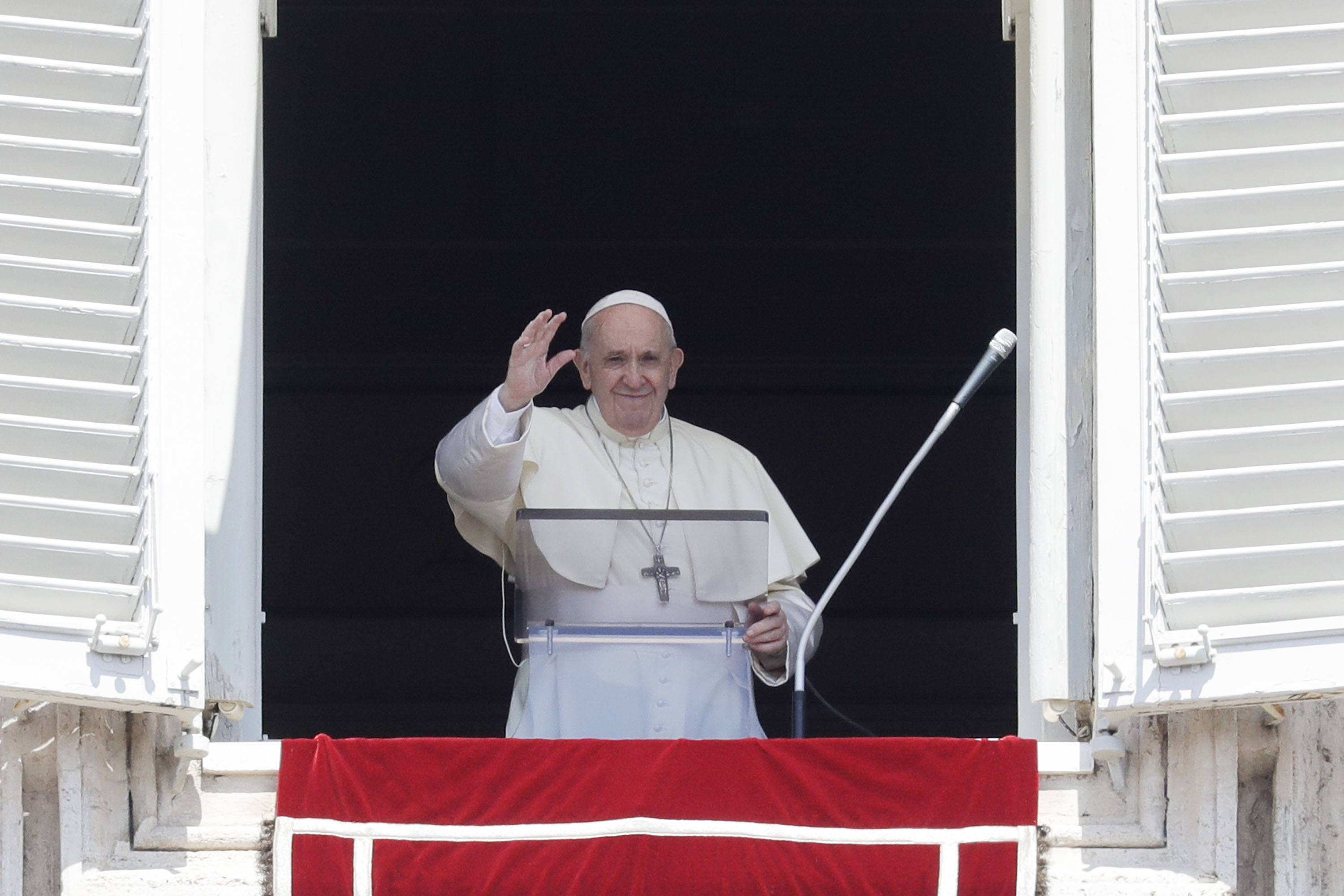 Pope Francis is pictured on August 15, as he delivers his blessing from the window of his studio overlooking St. Peter's Square, at the Vatican. Andrew Medichini/AP
Pope Francis is pictured on August 15, as he delivers his blessing from the window of his studio overlooking St. Peter's Square, at the Vatican. Andrew Medichini/APPope Francis said during his general audience on Wednesday that a coronavirus vaccine should be for everyone, particularly the poor.
“How sad it would be if access to a Covid-19 vaccine was made a priority for the richest. It would be sad if the vaccine became property of such and such nation and not universal for everyone," the Pope said.
The pandemic “has uncovered the plight of the poor and the great inequality that reigns in the world,” the Pope said, adding that the response to the pandemic is therefore "twofold."
“On the one hand, it is imperative to find the cure for a small but terrible virus, which is bringing the whole world to its knees. On the other hand, we must cure a great virus, that of social injustice, inequality of opportunity, marginalization and lack of protection for the weakest,” the pontiff said.
“We are all concerned about the social consequences of the pandemic ... Many want to return to normal (life) and resume economic activities," the Pope said, warning that “the pandemic is a crisis and from a crisis you don’t come out the same: you can come out better or worse.”
Charity and social assistance are important, the Pope stressed, “but we have to go further and find solutions for the problems that create the need of social assistance.” Today “we have the opportunity to build something different,” an economy that “doesn’t poison” society, he added.
Watch:
A risky roll call turns into a surprise moment of national unity
Analysis from CNN's Stephen Collinson
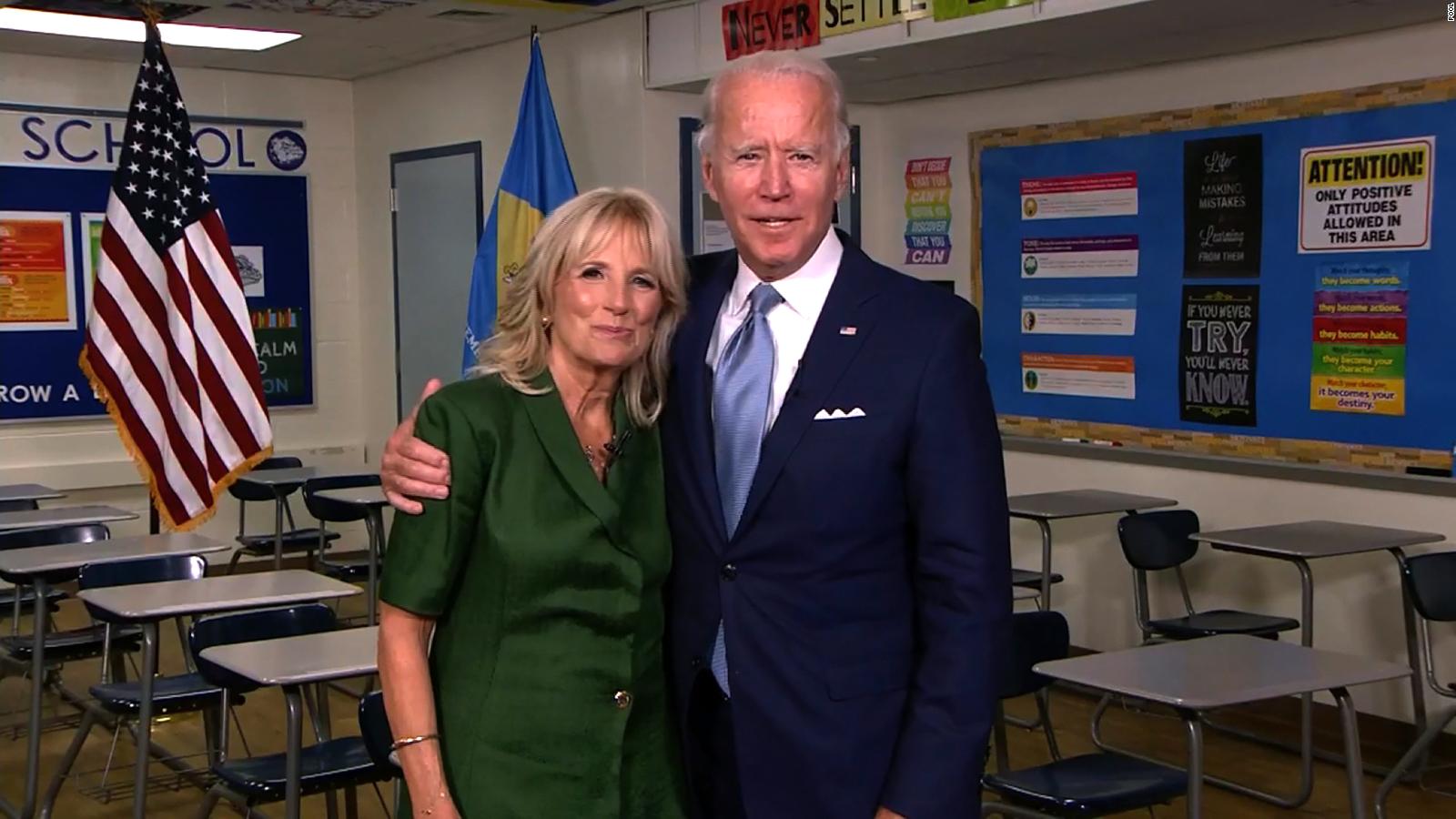 Democrat roll call officially nominates Joe Biden for president. Pool
Democrat roll call officially nominates Joe Biden for president. PoolOut of many, One.
Locked down, isolated and fearful as a pandemic fractured national bonds and the power of community, America got a sudden, startling look at itself on Tuesday night as the Democratic National Convention's virtual roll call vote whipped coast to coast and around the globe.
For a few sunny minutes, the despondency of the summer of Covid lifted during a celebratory glimpse into the country's vibrant geographic diversity, cultural breadth and enduring common purpose. A risky television production experiment that could have gone badly wrong instead turned into a pageant of national unity, and injected unusual bounce into nominee Joe Biden's basement campaign.
It was the surprise highlight of an evening showcasing the party's past and present, including two aged former presidents, the young star Rep. Alexandria Ocasio-Cortez of New York, more Republicans speaking in support of the nominee, and his wife, Jill Biden. And it might just have given the nation's flattened tourism industry the kind of publicity money can't buy.
Watch:
Here's what happened when students went to school during the 1918 pandemic
From CNN's Theresa Waldrop
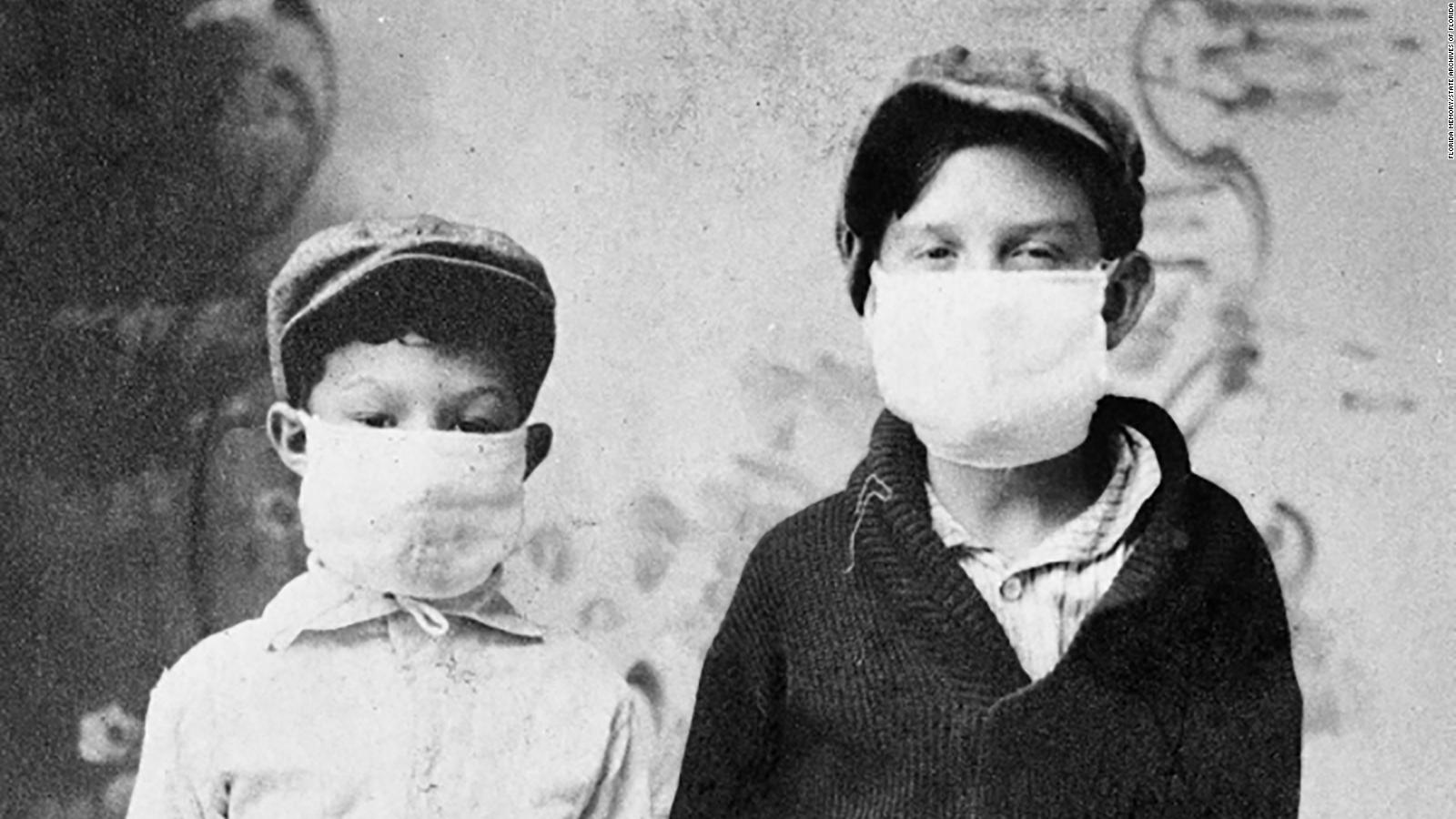 Youngsters Don Hoover and Joe Sistrunk of Starke, Florida are pictured wearing face coverings, ready for school, during the 1918 Spanish flu epidemic. Florida Memory/State Archives of Florida
Youngsters Don Hoover and Joe Sistrunk of Starke, Florida are pictured wearing face coverings, ready for school, during the 1918 Spanish flu epidemic. Florida Memory/State Archives of FloridaThis isn't the first time leaders have struggled with deciding whether to keep schools open in a pandemic.
During the influenza pandemic in 1918, even though the world was a very different place, the discussion was just as heated.
That pandemic killed an estimated 5 million people worldwide, including 675,000 Americans, before it was all over.
While the vast majority of cities closed their schools, three opted to keep them open -- New York, Chicago and New Haven, according to historians.
The decisions of health officials in those cities was based largely on the hypothesis of public health officials that students were safer and better off at school. It was, after all, the height of the Progressive Era, with its emphasis on hygiene in schools and more nurses for each student than is thinkable now.
NYPD creates Asian Hate Crime Task Force after spike in anti-Asian attacks during pandemic
From CNN's Taylor Romine
The New York Police Department announced the creation of an Asian Hate Crime Task Force after an increase in racist attacks against Asian Americans during the Covid-19 pandemic, Chief of Detectives Rodney Harrison told reporters Tuesday.
Since March 21, there have been 21 reported anti-Asian hate crimes that have resulted in 17 arrests, according to Harrison, which he said is higher than normal.
Victims have been reluctant to speak with police during investigations, he said, because of language barriers, cultural differences and fear of the police. In May, Deputy Inspector Stewart Loo proposed the creation of an anti-Asian hate crime task force, hoping that through a dedicated team they could build a better rapport with the community.
The team includes 25 Asian American officers that speak a second language, Loo said. Not having to use translators will increase investigators' ability to develop relationships with victims and ultimately lead to more cooperation, he continued. Harrison noted that four of the 17 arrests were done with the help of the task force.
"This task force has been built and will continue to build trust and understanding between the NYPD and with Asian New Yorkers," Harrison said.
The task force will be permanent, Harrison said, and other culture-based task forces may be considered in the future.
Read more:
Bali plans to reopen to international tourists in September. Plenty of obstacles stand in its way
From CNN's Theodora Sutcliffe
September 11 might be associated with tragedy in US aviation history, but it's an auspicious day on Bali's Hindu calendar.
That's why, come 9/11, authorities on this Indonesian island hope to see the return of some of the millions of international visitors who usually flock to its beaches, temples, rice fields and yoga studios. This would allow long-shuttered hotels to reopen while providing desperately needed income for tourism workers -- some of whom have earned nothing since February.
Tjokorda Oka Artha Ardana Sukawati, Bali's vice-governor and former chair of the island's hotel and restaurant association, tells CNN Travel the date remains tentative, but reopening is critical to the island's economy.
"The Covid-19 pandemic is the most devastating disaster for Bali tourism," he says. "It is much worse than the Bali bombings, both the first and the second, and worse than all the Mount Agung eruptions combined."
Hotel arrivals in July were down over 99% year on year, Sukawati noted, while the island is missing out on around 9.7 trillion rupiah ($655 million) of income every month. Tens of thousands of local workers have been officially furloughed, generally without pay. Thousands have lost formal jobs, and many workers in Bali's large informal tourist economy are desperate.
While some Balinese are able to return to their family orchards, rice fields or fishing boats and contemplate rebalancing the economy towards the traditional way of life that sustained the island for centuries, other islanders have, quite literally, nowhere to go.
Read the full story:

 5 years ago
678
5 years ago
678 